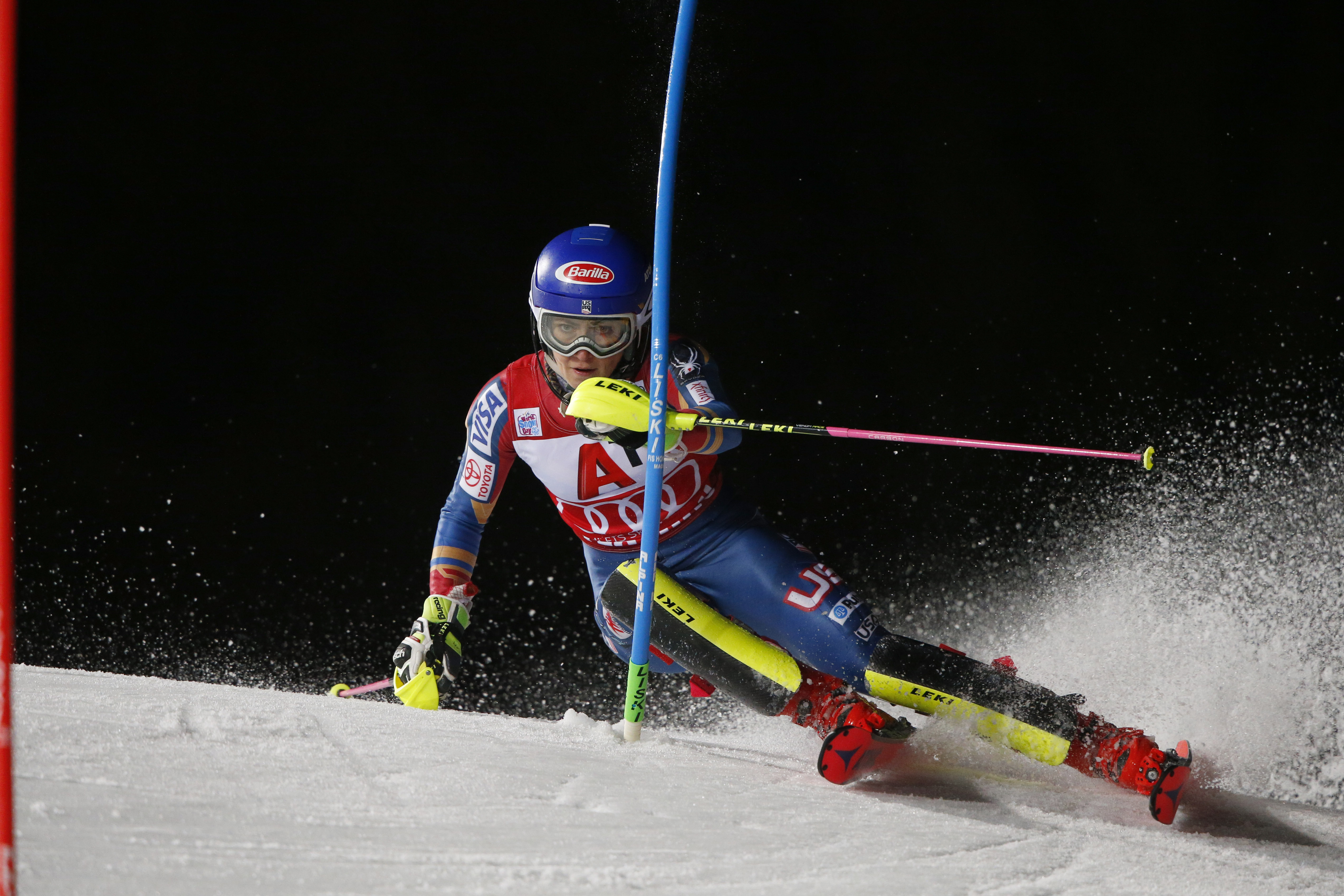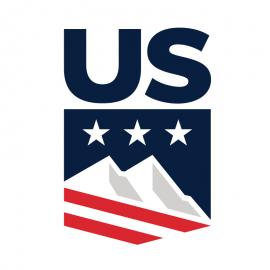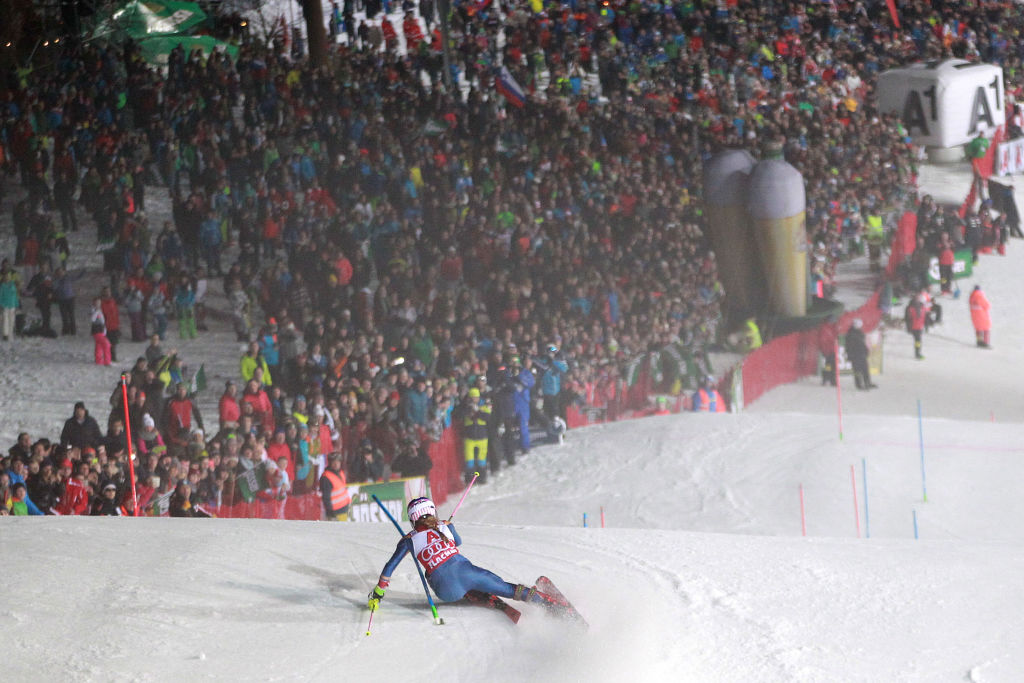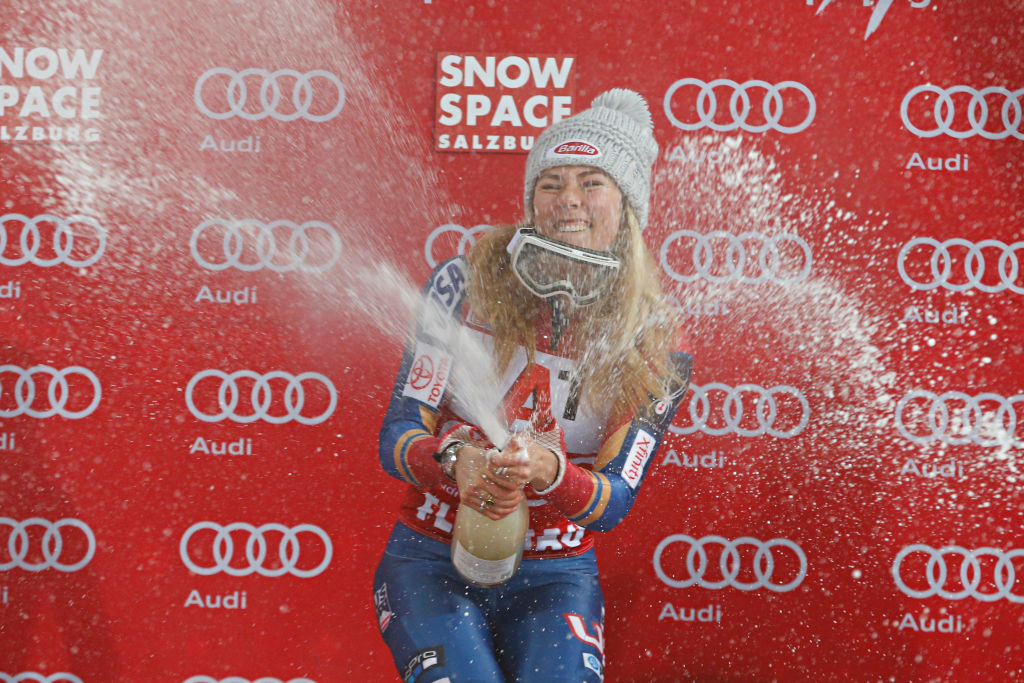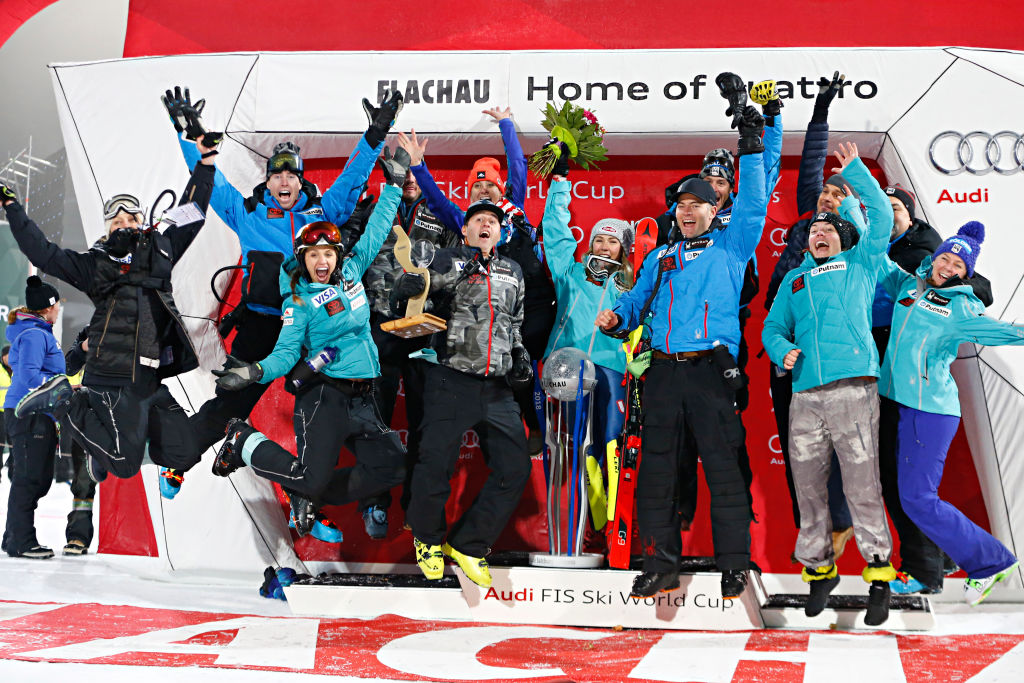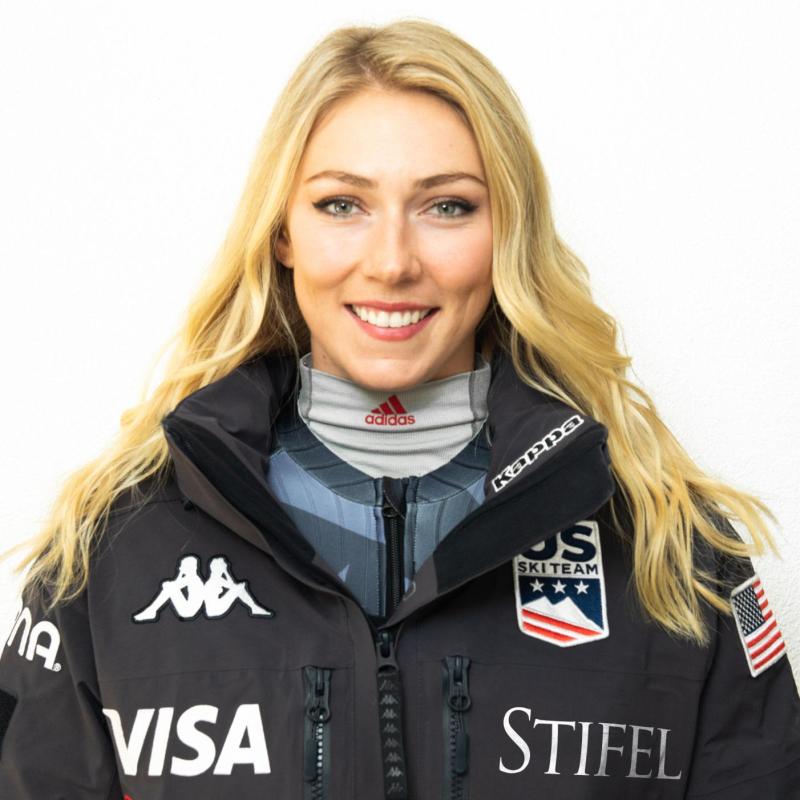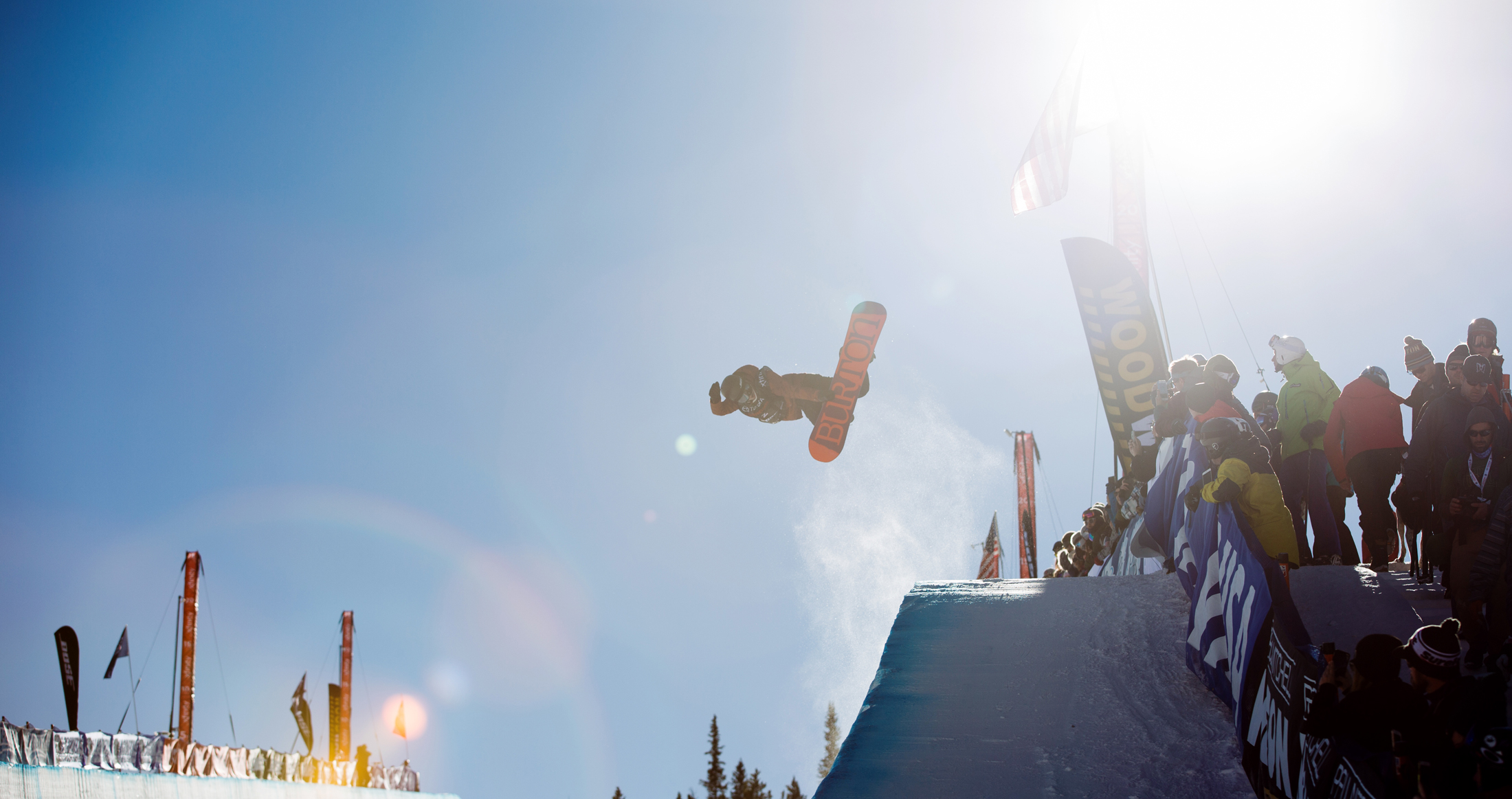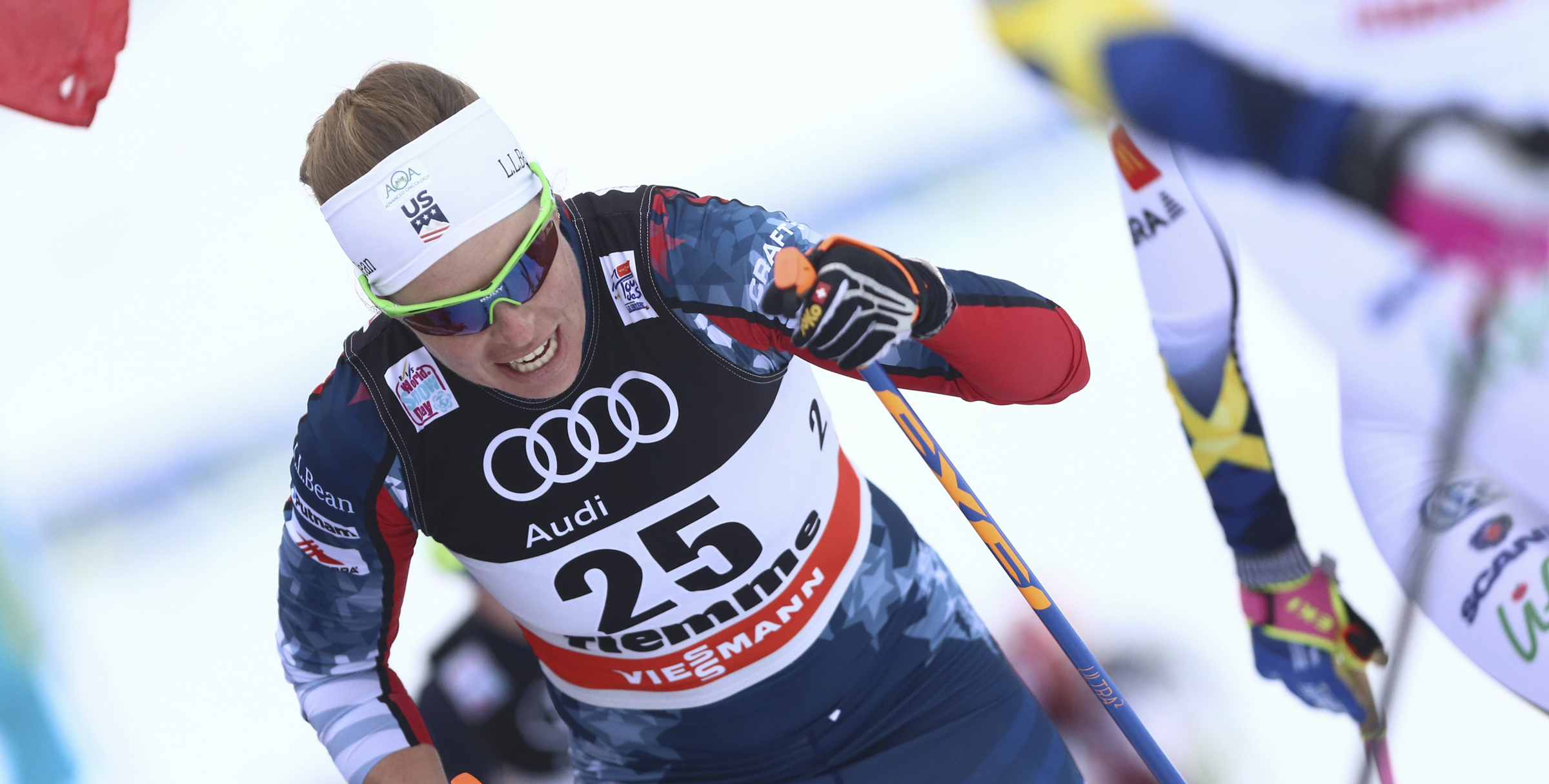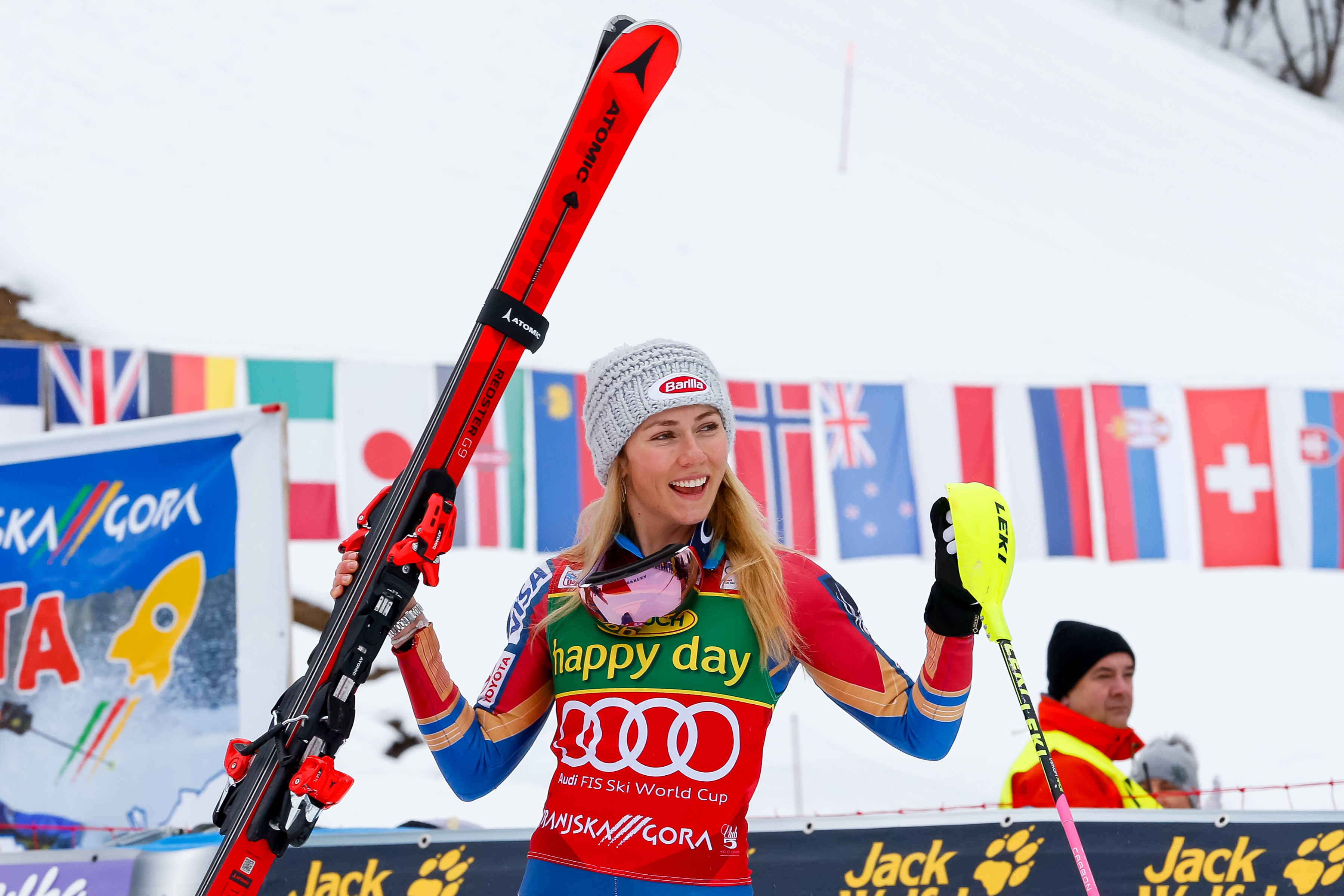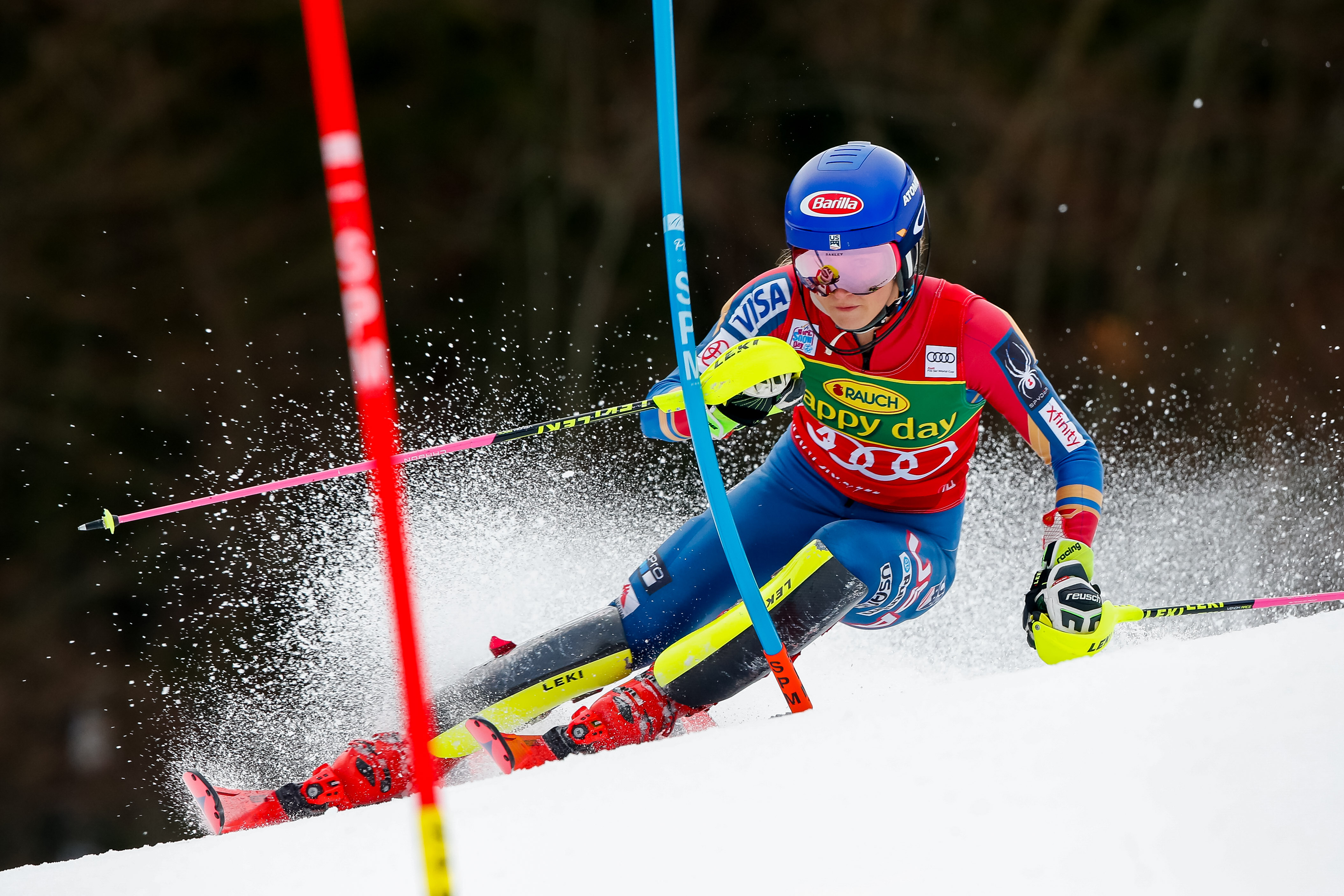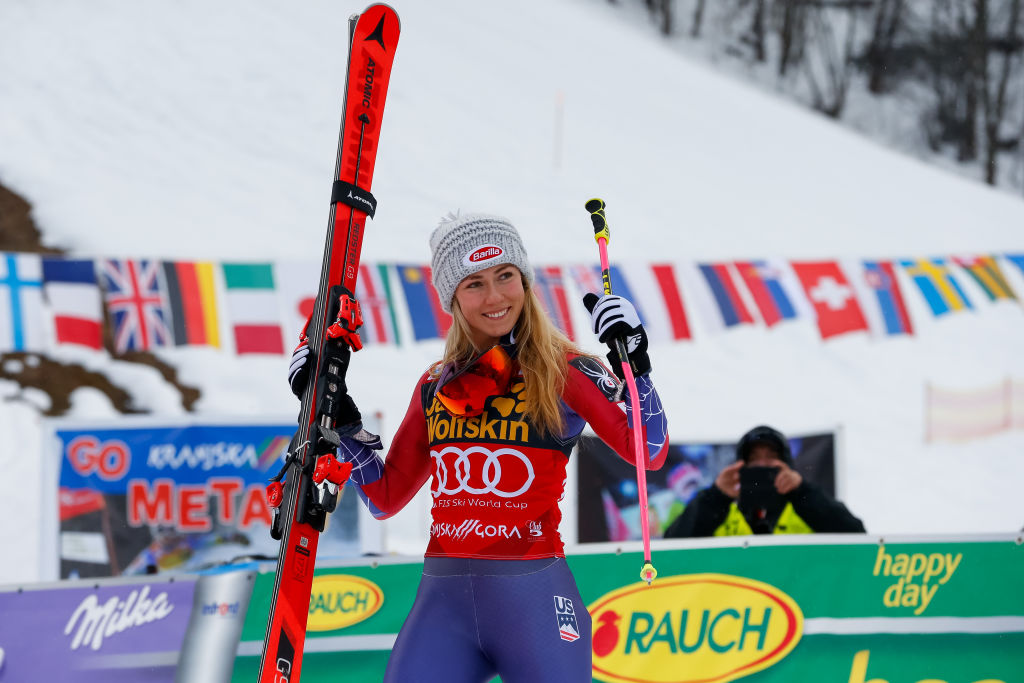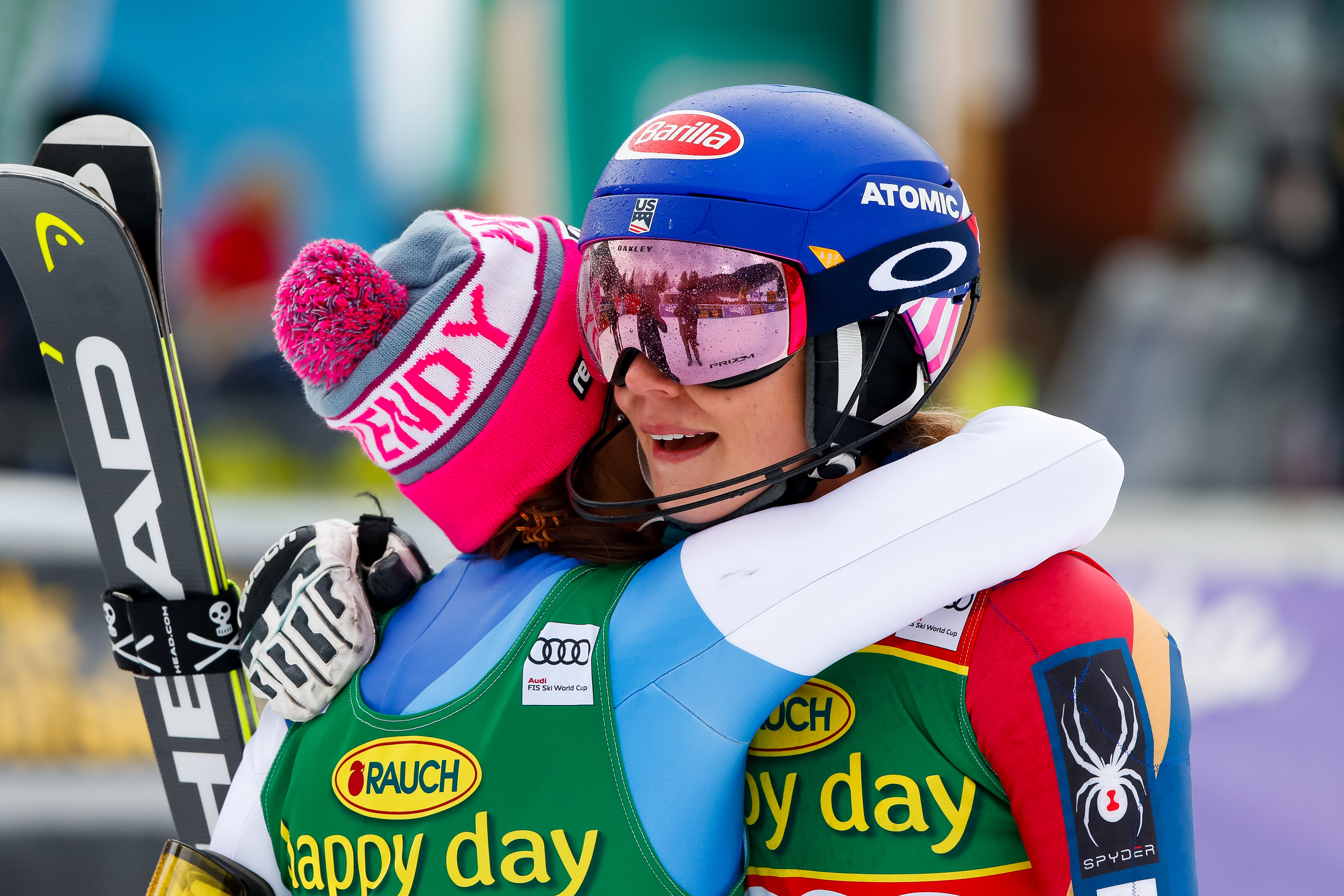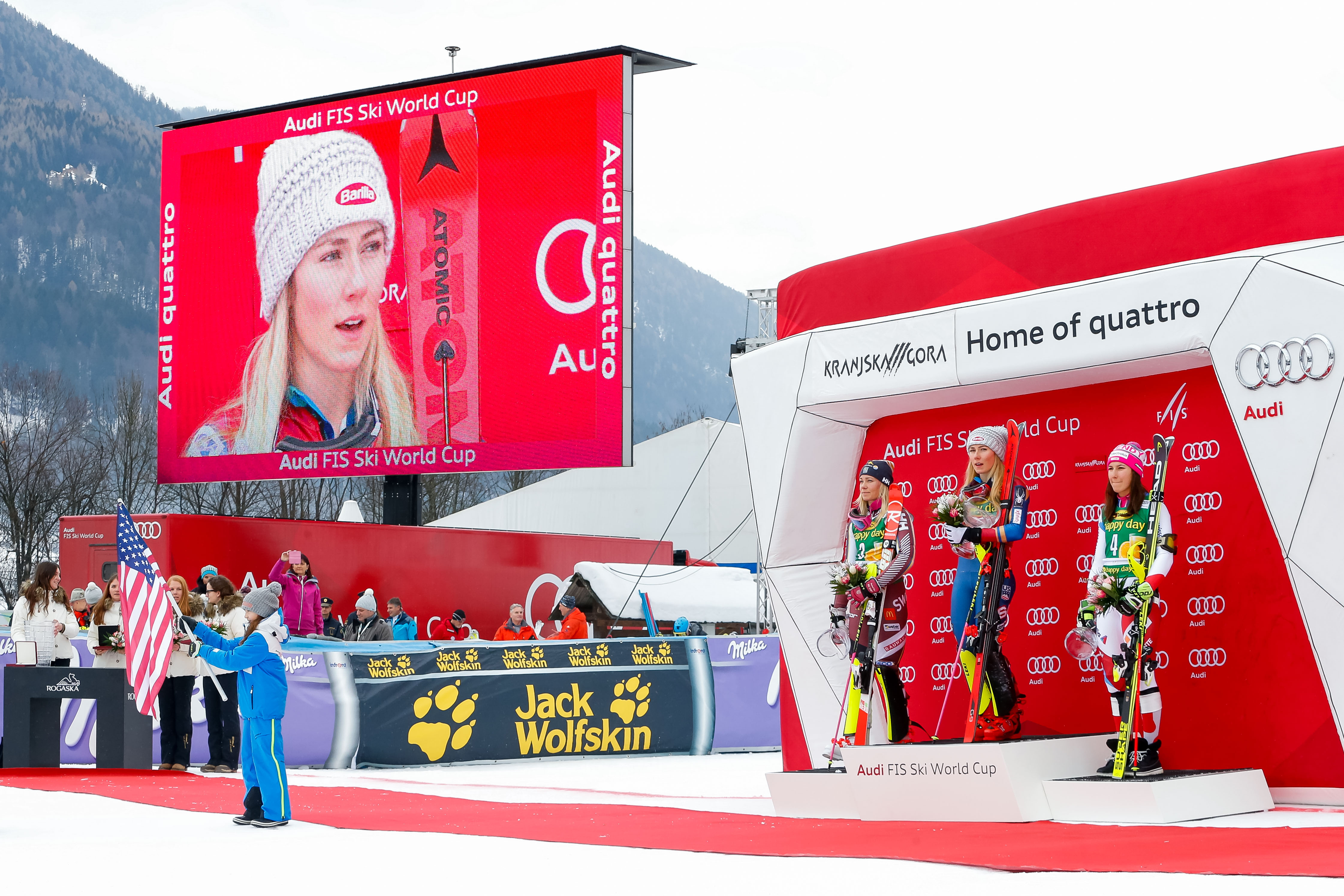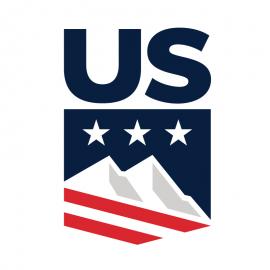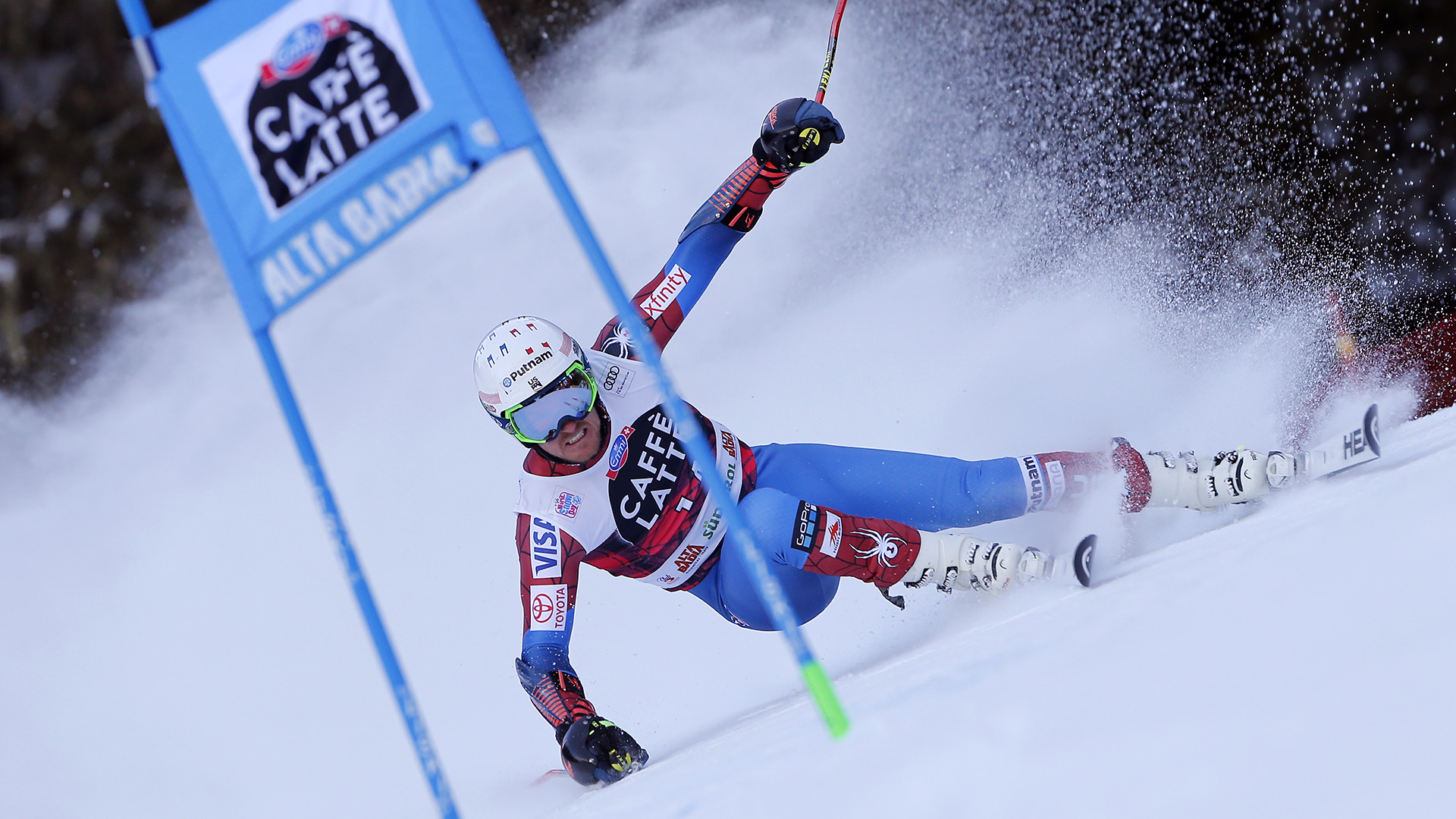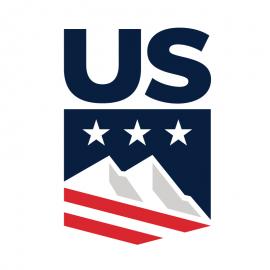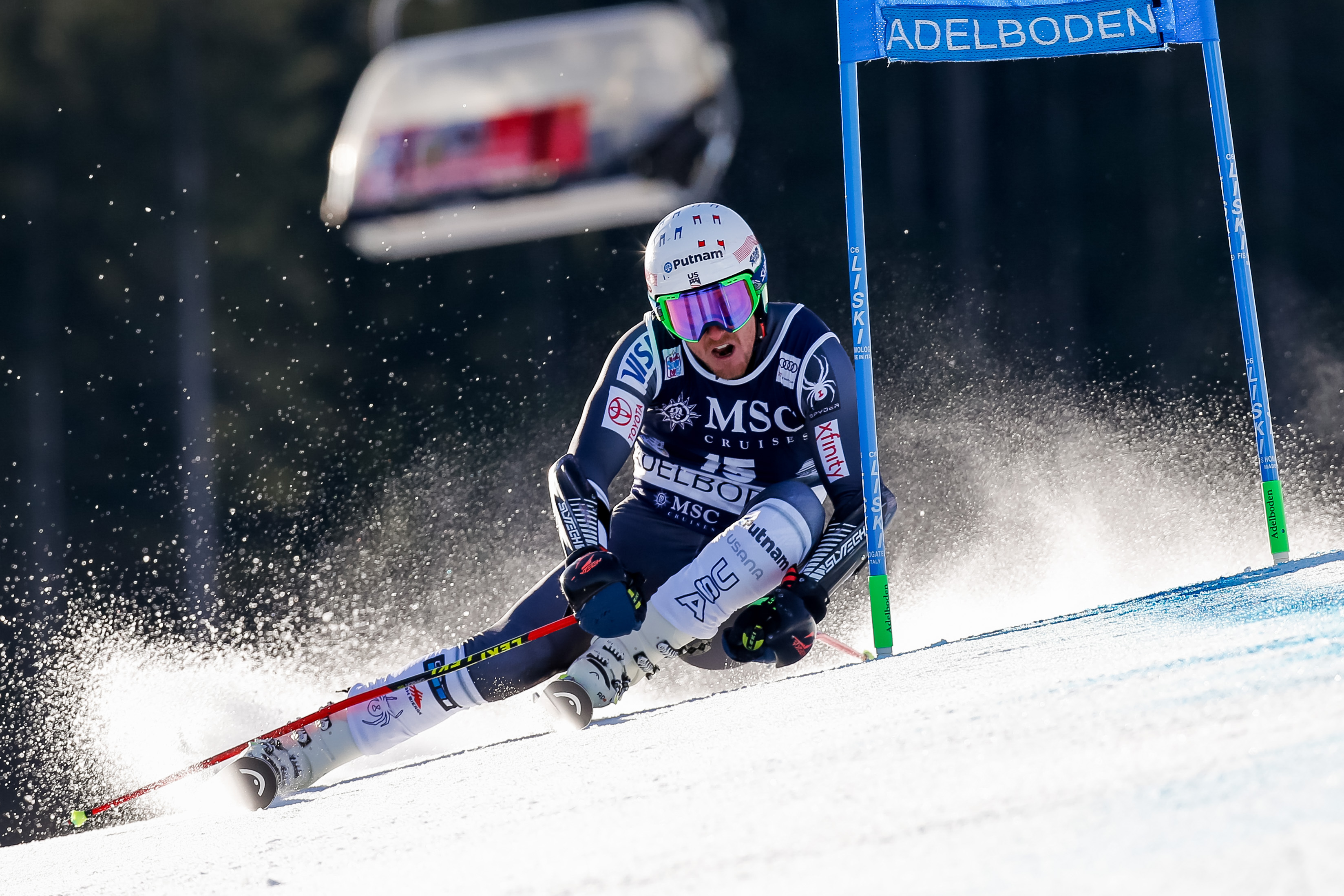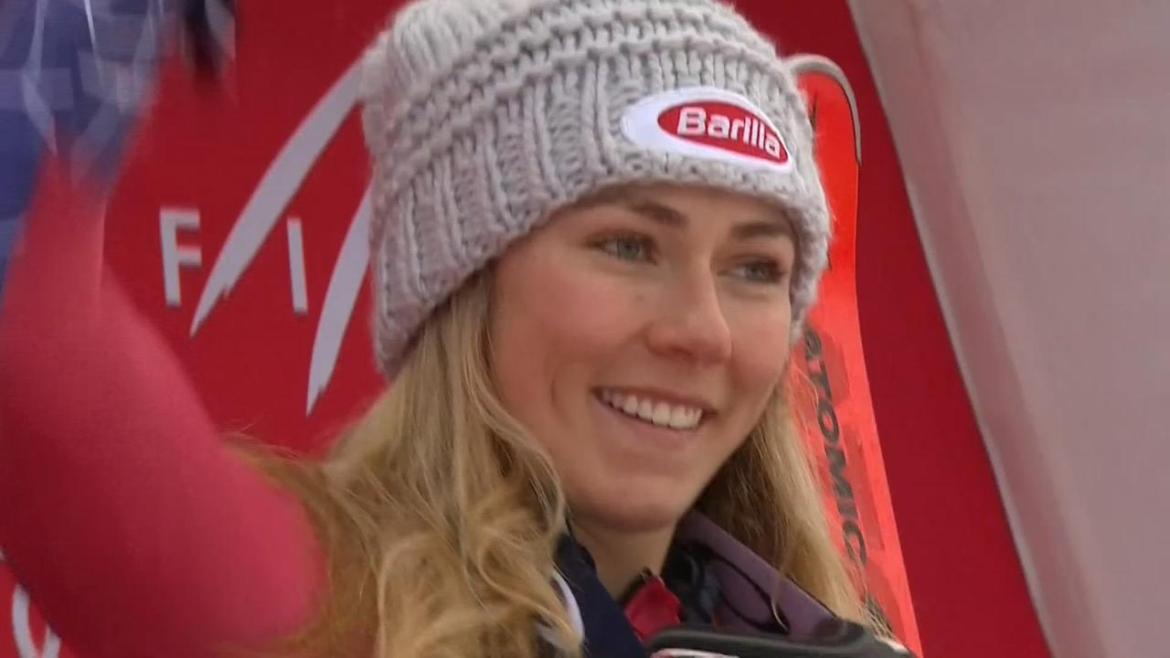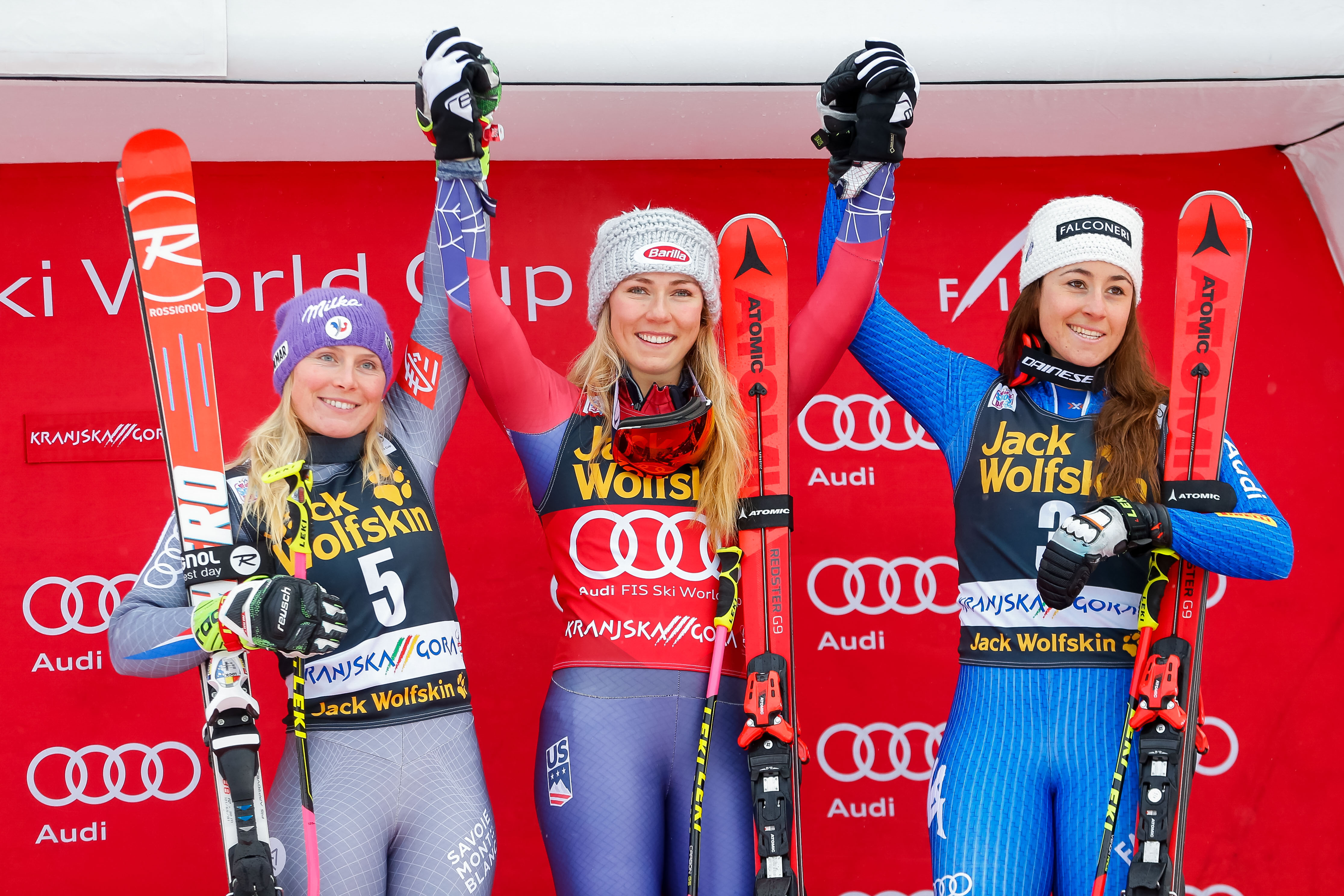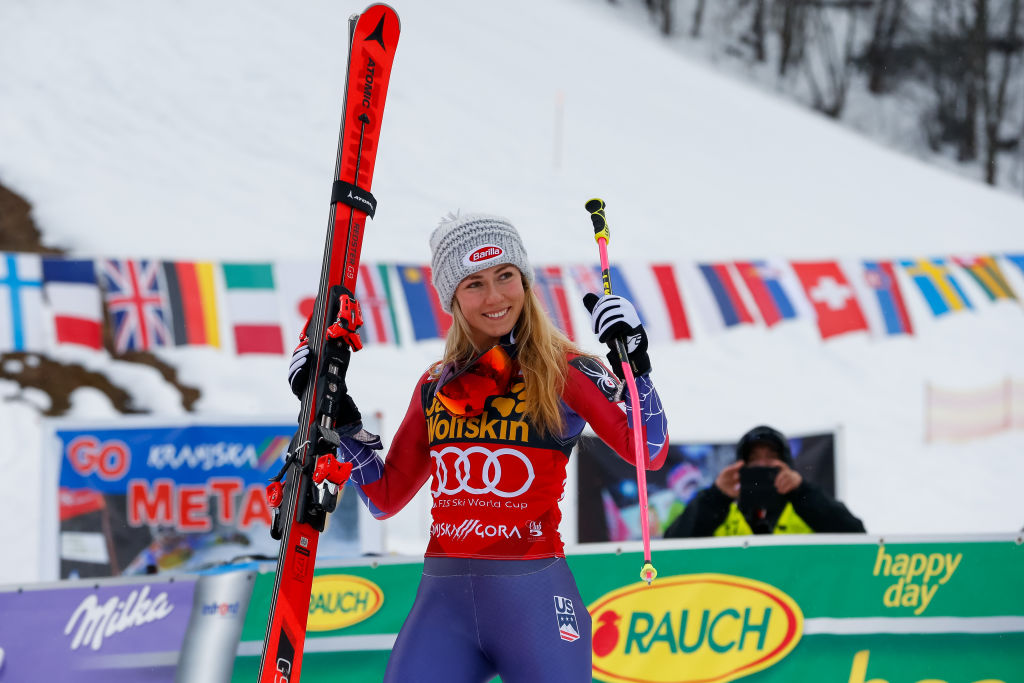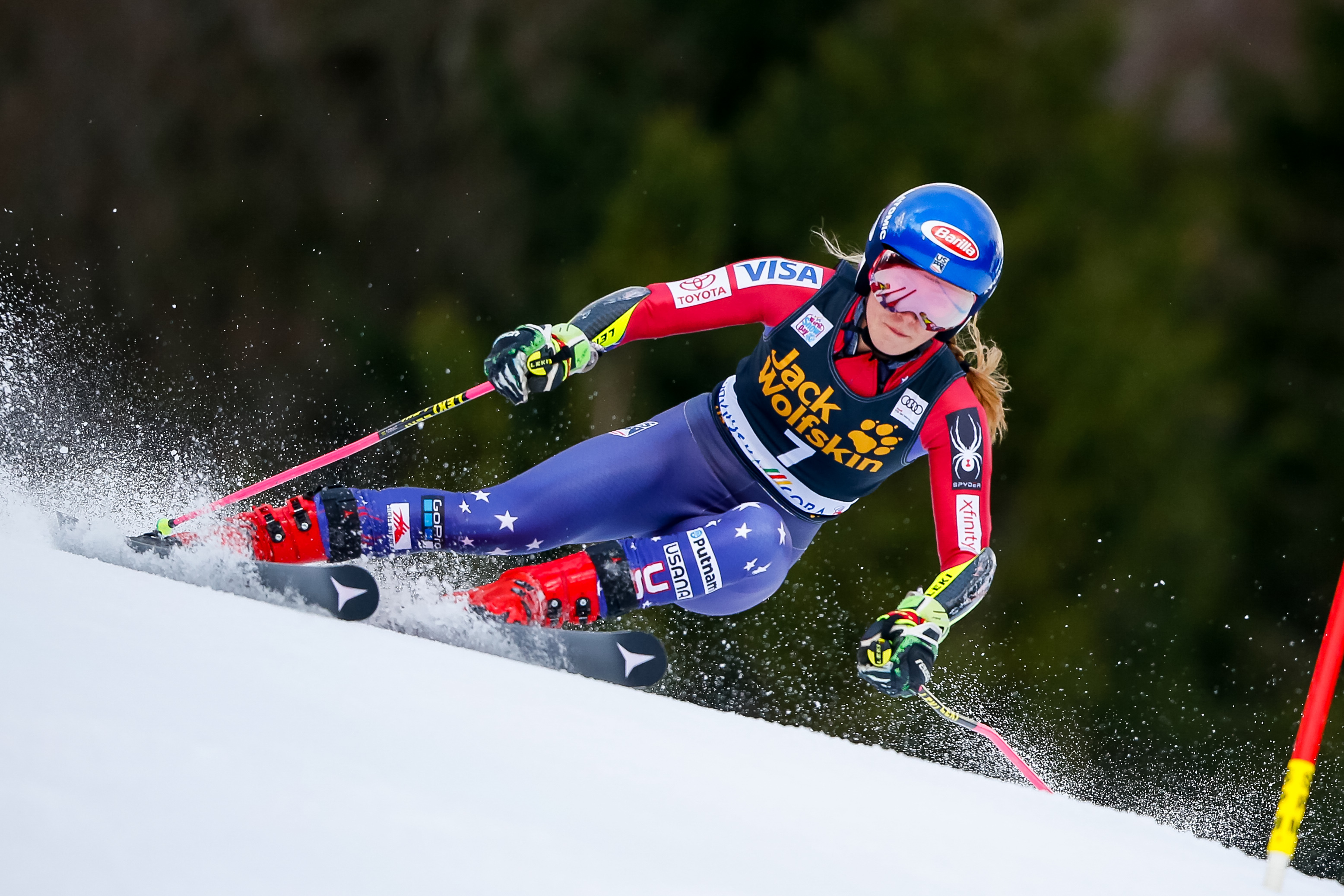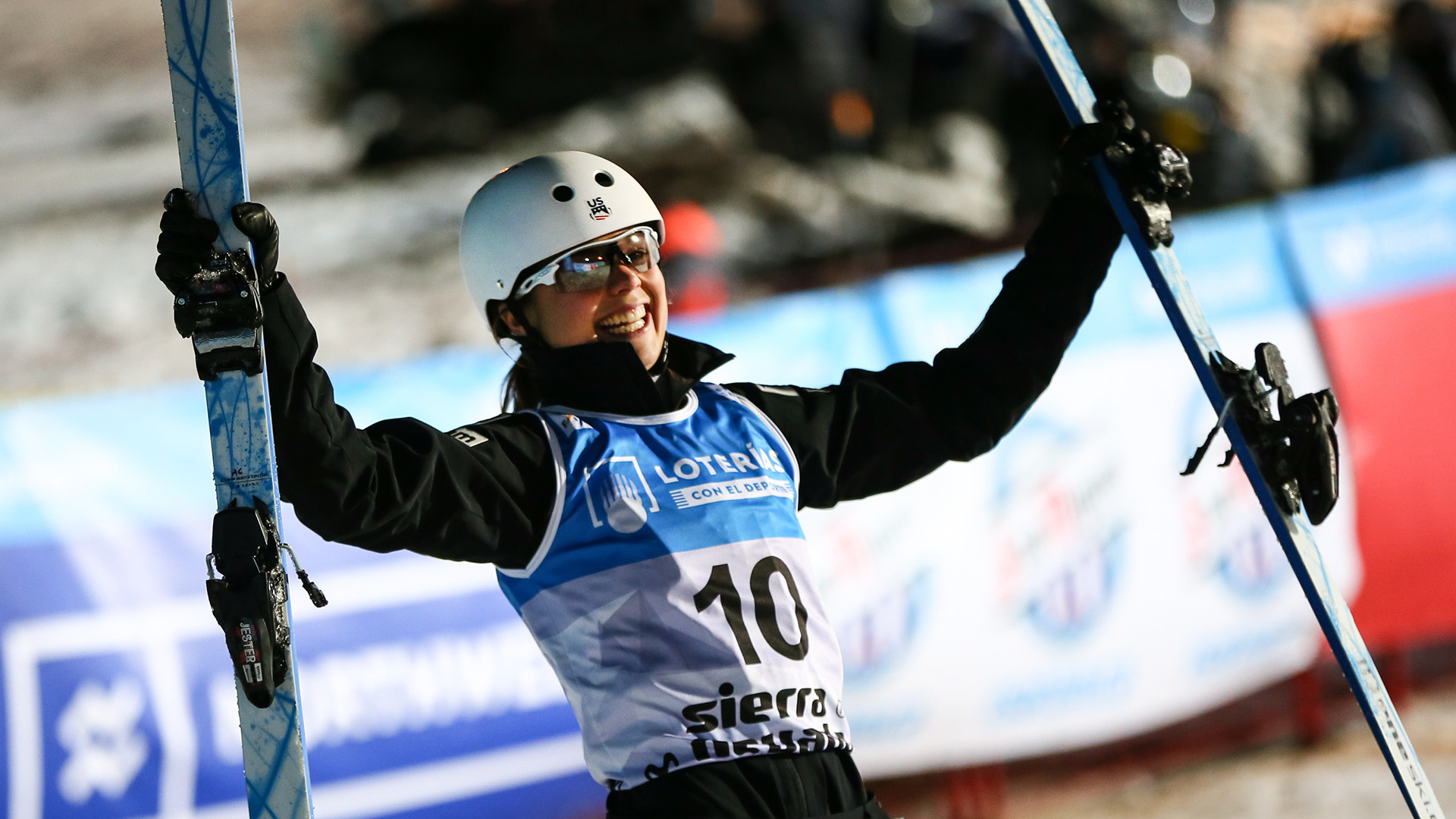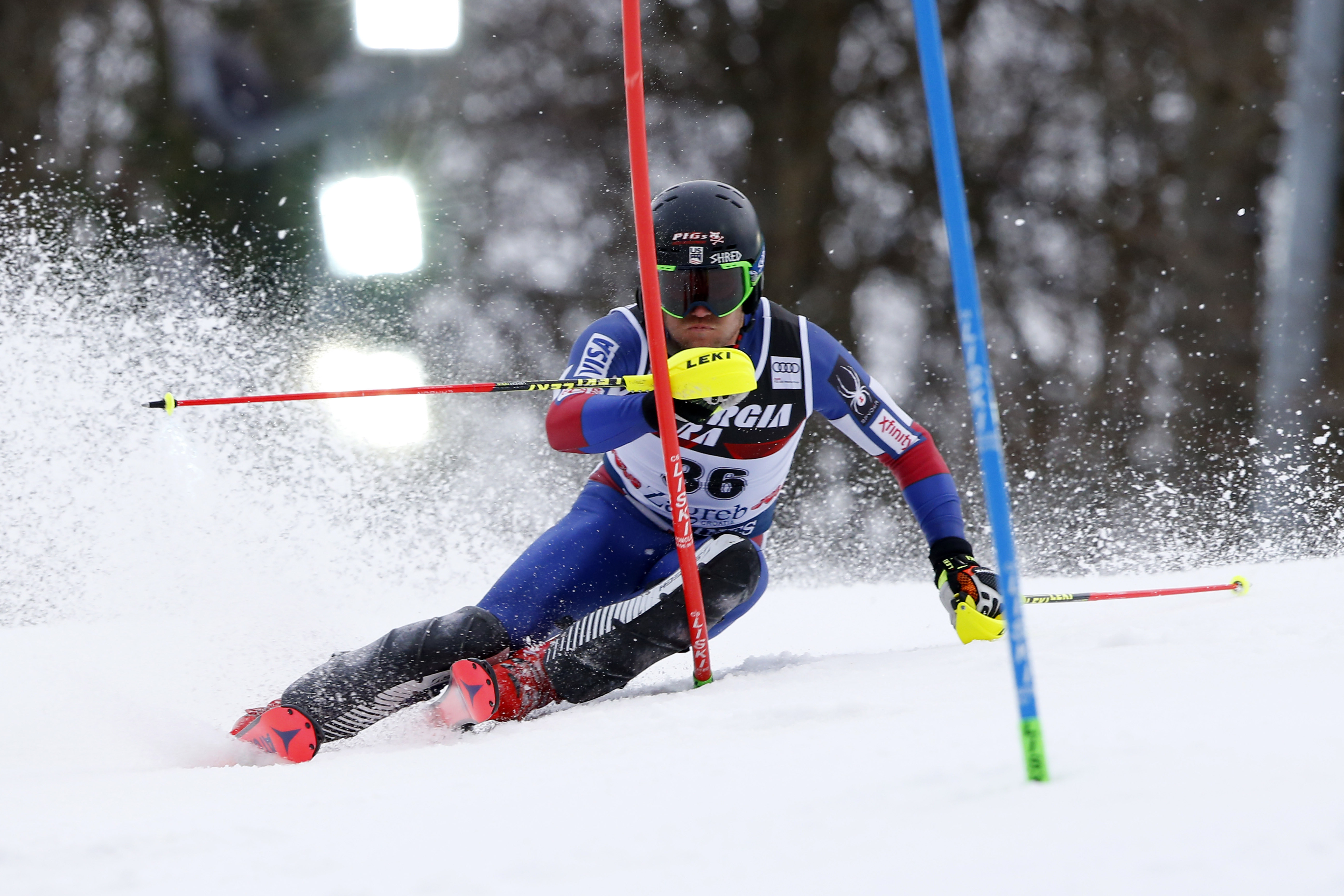These are exciting times for U.S. Ski & Snowboard with the 2018 Olympic Winter Games less than a month away.
Since the start of 2018, Mikaela Shiffrin (Eagle-Vail, Colo.) has won all four (maybe five, we’ll know Tuesday) World Cup events. Aeralist Kiley McKinnon (Madison, Conn.) won her first-career World Cup event and achieved objective criteria to make the Olympic team, and Jessie Diggins (Afton, Minn.) became the first U.S. skier ever to land on the Tour de Ski podium with a third-place finish. Momentum is building across the entire U.S. Ski & Snowboard team as the final competitions take place before the 2018 Olympic Winter Games.
Read on to see where U.S. Ski & Snowboard athletes will be in action this week and how to watch via NBC, NBCSN and the Olympic Channel - Home of Team USA.
FIS Women’s Ski World Cup - Flachau + Bad Kleinkirchheim, AUT
Shiffrin will continue her quest for dominance in the final slalom World Cup before the Olympics on Jan. 9 in Flachau, Austria. The women’s speed team is back in action in the New Year with super-G and downhill races Jan. 13-14. The U.S. has a strong contingent of athletes expected to compete, including Lindsey Vonn (Vail, Colo.), Laurenne Ross (Bend. Ore.), Stacey Cook (Mammoth, Calif.) and Jackie Wiles (Aurora, Ore.).
FIS Men’s Ski World Cup - Wengen, SUI
Wengen, Switzerland will play host to men’s speed and tech events this coming week with an alpine combined event on Jan. 12, downhill Jan. 13 and slalom Jan. 14. Notable names on the large U.S. roster include Ted Ligety (Park City, Utah), Steven Nyman (Sundance, Utah), Bryce Bennett (Squaw Valley, Calif.) and David Chodounsky (Crested Butte, Colo.).
Visa Freestyle International - Deer Valley Resort, Utah
The FIS Freestyle World Cup tour makes its first of two stops in the U.S. this week with moguls and aerials competitions Jan. 10-12 at Deer Valley Resort in Park City, Utah. It’s the penultimate Olympic selection event, so the top U.S. Ski Team athletes will be looking to secure podiums and state their case to be named to the 2018 Olympic team. Lake Placid hosts the Putnam Investments Freestyle Cup with aerials competition Jan. 19-20.
Toyota U.S. Grand Prix - Snowmass, Colo.
U.S. Freeski and Snowboard Team athletes will compete in their third Olympic qualifier of the season this week at the Toyota U.S. Grand Prix in Snowmass, Colorado. It is the first time Snowmass has hosted a Grand Prix since 1998 and despite the warmer than average weather, the mountain operations team has put a ton of effort into snowmaking and grooming to provide the athletes a world-class competition venue. Chloe Kim (Torrence, Calif.), Jamie Anderson (S. Lake Tahoe, Calif.) and Chris Corning (Silverthorne, Colo.) are the only athletes that have confirmed their nominations to the U.S. Olympic Team, so athletes across both sports will be gunning for top results and the chance to compete in PyeongChang. Finals for all competitions take place Jan. 12-14.
FIS Freestyle World Cup - Idre Fjall, SWE
Tanya Prymak (Goshen, N.Y.), Tyler Wallasch (Mammoth Lakes, Calif.) and Brant Crossan (Steamboat Springs, Colo.) will represent the U.S. this weekend at the ski cross World Cup in Sweden. Qualifications take place Jan. 12 followed by competitions Jan. 13 and 14.
FIS Cross Country World Cup - Dresden, GER
The U.S. Cross Country Ski Team enters its final weekend of Olympic selection events with individual and team sprints Jan. 13-14 in Dresden, Germany. The U.S. will have nine skiers racing, including World Champion Kikkan Randall (Anchorage, Alaska), Sophie Caldwell (Stratton, Vt.), Simi Hamilton (Aspen, Colo.) and Andy Newell (Shaftsbury, Vt.).
FIS Women’s Ski Jumping World Cup - Sapporo, JPN
Newly named U.S. Olympic Team member Sarah Hendrickson (Park City, Utah) leads the U.S. into a HS100 event in Sapporo, Japan. Qualifications take place on Jan. 12 followed by World Cups on Jan. 13 and 14. Other competitors include Nita Englund (Steamboat Springs, Colo.), Abby Ringquist (Park City, Utah) and Tara Geraghty-Moats (West Fairlee, Vt.).
FIS Men’s Ski Jumping World Cup - Tauplitz/ Bad Mitterndorf, AUT
2018 Olympic Team member Michael Glasder (Cary, Ill.), along with USA Nordic teammates Will Rhoads (Park City, Utah) and Kevin Bickner (Wacounda, Ill.) will compete in the first of two ski flying World Cups this month on the HS235 hill in Austria. Qualifications take place on Jan. 12 followed by competitions on Jan. 13 and 14.
FIS Nordic Combined World Cup - Val di Fiemme, ITA
Brothers Bryan and Taylor Fletcher (Steamboat Springs, Colo.) along with Ben Loomis (Eau Claire, Wis.) and Jasper Good (Steamboat Springs, Colo.) will compete in two individual and one team event in Val di Fiemme, Italy Jan. 12-14.
FIS Snowboard World Cup - Bad Gastein, AUT
The U.S. will have six athletes competing in parallel slalom and team slalom World Cups Jan. 13-14 in Bad Gastein, Austria.
U.S. SKI & SNOWBOARD BROADCAST AND STREAMING SCHEDULE
All times EST
*schedules subject to change
ALPINE
Jan. 9
12:00 p.m. – Women’s slalom, run 1; Flachau – olympicchannel.com
2:30 p.m. – Women’s slalom, run 2; Flachau – Olympic Channel TV
5:30 p.m. – Women’s slalom, run 2; Flachau – NBCSN (same day coverage)
Jan. 11
6:00 p.m. – Women’s slalom, run 2; Flachau – NBCSN (next day coverage)
Jan. 12
4:30 a.m. – Men’s combined, downhill; Wengen – olympicchannel.com
10:00 a.m. – Men’s combined, slalom; Wengen – Olympic Channel TV
Jan. 13
4:30 a.m. – Women’s super-G; Bad Kleinkirchheim – Olympic Channel TV
6:30 a.m. – Men’s downhill; Wengen – Olympic Channel TV
10:00 p.m. – Women’s super-G; Bad Kleinkirchheim – NBCSN (same day coverage)
11:00 p.m. – Men’s downhill; Wengen – NBCSN (same day coverage)
Jan. 14
4:15 a.m. – Men’s slalom, run 1; Wengen – olympicchannel.com
5:00 a.m. – Women’s Downhill; Bad Kleinkirchheim – Olympic Channel TV
6:30 a.m. – Men’s slalom, run 2; Wengen – Olympic Channel TV
FREESTYLE
Jan. 10
8:45 p.m. – Moguls finals #1; Visa Freestyle International – nbcsports.com
Jan. 11
8:00 p.m. – Moguls finals #1; Visa Freestyle International – NBCSN (next day coverage)
8:45 p.m. – Moguls finals #2; Visa Freestyle International – nbcsports.com
Jan. 12
8:30 p.m. – Moguls finals #2; Visa Freestyle International – NBCSN (next day coverage)
9:45 p.m. – Aerials finals; Visa Freestyle International – nbcsports.com
Jan. 13
5:00 a.m. – Ski cross; Idre Fjall – olympicchannel.com
2:30 p.m. – Aerials finals; Visa Freestyle International – NBC (next day coverage)
Jan. 14
6:00 a.m. – Ski cross; Idre Fjall – olympicchannel.com
TOYOTA U.S. GRAND PRIX
Jan. 12
11:15 a.m – Slopestyle snowboarding finals – nbcsports.com
2:45 p.m – Halfpipe skiing finals – nbcsports.com
9:30 p.m – Slopestyle snowboarding finals – NBCSN (Same day coverage)
11:00 p.m. – Halfpipe skiing finals – NBCSN (Same day coverage)
Jan. 13
11:15 a.m – Slopestyle skiing finals #1 – nbcsports.com
2:45 p.m – Halfpipe snowboarding finals – nbcsports.com
Jan. 14
3:00 p.m – Slopestyle skiing finals #2 – nbcsports.com
3:00 p.m. – Halfpipe snowboarding finals – NBC (next day coverage)
Jan. 15
1:30 a.m. – Slopestyle skiing finals #1 – NBCSN
Jan. 16
12:00 a.m. – Slopestyle skiing finals #2 – NBCSN
CROSS COUNTRY
Jan. 13
6:20 a.m. – Men’s and women’s sprint – olympicchannel.com
12:00 p.m. – Men’s and women’s sprint – Olympic Channel TV (Same day coverage)
Jan. 14
5:15 a.m. – Men’s and women’s team sprint – olympicchannel.com
12:00 p.m. – Men’s and women’s team sprint – Olympic Channel TV (Same day coverage)
SKI JUMPING
Jan. 12
6:00 a.m. – Men’s HS225 Qualification; Tauplitz/ Bad Mitterndorf – olympicchannel.com
9:00 p.m. – Women’s HS100 Qualification; Sapporo – Olympic Channel TV
Jan. 13
6:00 a.m. – Men’s HS225; Tauplitz/ Bad Mitterndorf – olympicchannel.com
4:00 p.m. – Men’s HS225; Tauplitz/ Bad Mitterndorf – Olympic Channel TV (same day coverage)
9:00 p.m. – Women’s HS100; Sapporo – Olympic Channel TV
Jan. 14
8:15 a.m. – Men’s HS225; Tauplitz/ Bad Mitterndorf – olympicchannel.com
4:00 p.m. – Men’s HS225; Tauplitz/ Bad Mitterndorf – Olympic Channel TV (same day coverage)
NORDIC COMBINED
Jan. 12
3:30 a.m. – Men’s HS135 – olympicchannel.com
7:30 a.m. – Men’s individual 10k – olympicchannel.com
Jan. 13
4:00 a.m. – Men’s HS135 – olympicchannel.com
9:45 a.m. – Men’s team sprint – olympicchannel.com
Jan. 14
4:00 a.m. – Men’s HS135 – olympicchannel.com
7:45 a.m. – Men’s individual 10k – olympicchannel.com
SNOWBOARD
Jan. 12
12:00 p.m. – Men’s and women’s parallel slalom; Bad Gastein – olympicchannel.com
Jan. 13
10:30 a.m. – Men’s and women’s parallel slalom team event; Bad Gastein – olympicchannel.com
